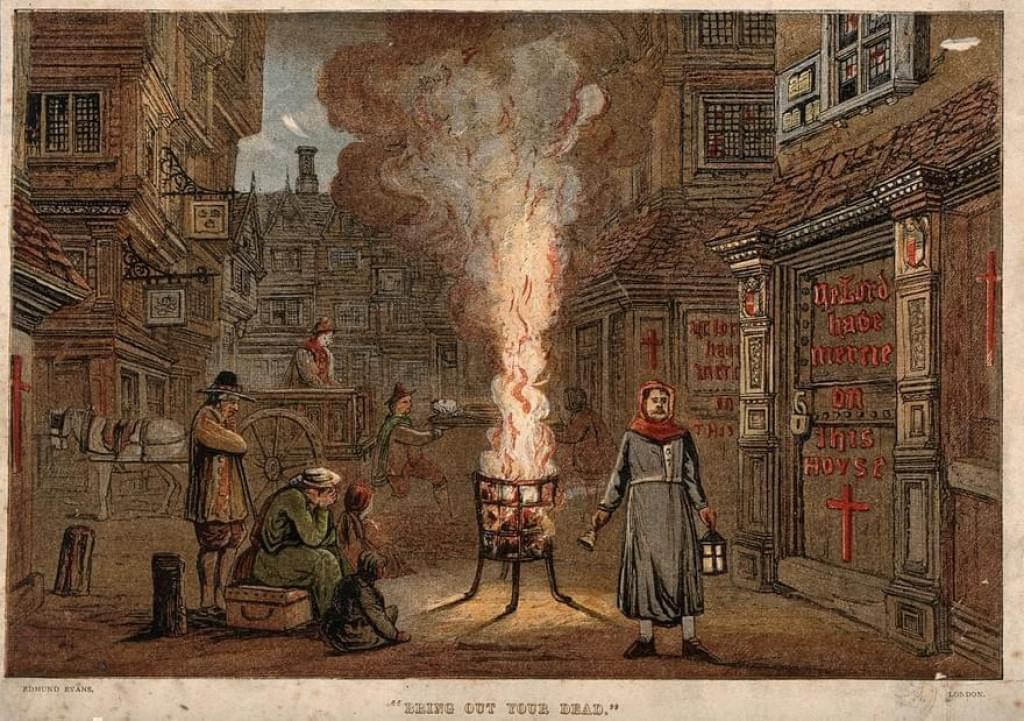Finding Lessons in the Literature of Pandemics

Wellcome Collection (cc by 4.0)
When living through troubling times — experiences that for most of us are new and frightening — there can be a certain comfort in learning that people have been through this sort of thing before.
Off and on through much of the last millennium, Europeans faced down the Black Death — the bubonic plague — and documented it in stories.
One such episode claimed tens of thousands of loves in London in 1665. It was chronicled later in a novel, A Journal of the Plague Year, by prolific English author Daniel Defoe.
"I had two important things before me; the one was the carrying on my Business and Shop, which was considerable, and in which was embark’d all my Effects in the World; and the other was the Preservation of my Life in so dismal a Calamity, as I saw apparently was coming upon the whole City; and which however great it was, my Fears perhaps as well as other Peoples, represented to be much greater than it could be," Defoe's narrator says.
Defoe was a child during the outbreak and did not write the Journal until much later in life. But he grounded it in meticulous detail, publishing it as a warning in 1722, as another outbreak of the plague was threatening England.
Nearly 400 years before that, Boccacio wrote The Decameron, a collection of short stories about a group of wealthy young Italians trying to escape another epidemic in 1348.
Beyond their historical value, both works resonate today — in illustrating the ways governments respond and fail to respond to epidemics, the ways wealth can and cannot protect one from disease, and how information and misinformation spreads in a crisis.
Guests:
Elizabeth Zold, associate professor of English at Winona State University
Eleonora Stoppino, associate professor of Italian and director of the program in Medieval Studies at the University of Illinois at Urbana-Champaign

